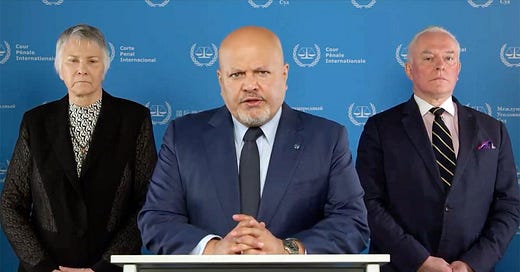As I wrote at the time, I was surprised to hear three weeks ago that Karim Khan KC, prosecutor of the International Criminal Court (ICC), was reportedly seeking arrest warrants for Israeli leaders.
One reason for my scepticism was based, as I wrote, on the court’s foundational principle:
Known as the principle of complementarity, it means that the ICC ste…
Keep reading with a 7-day free trial
Subscribe to A Lawyer Writes to keep reading this post and get 7 days of free access to the full post archives.



